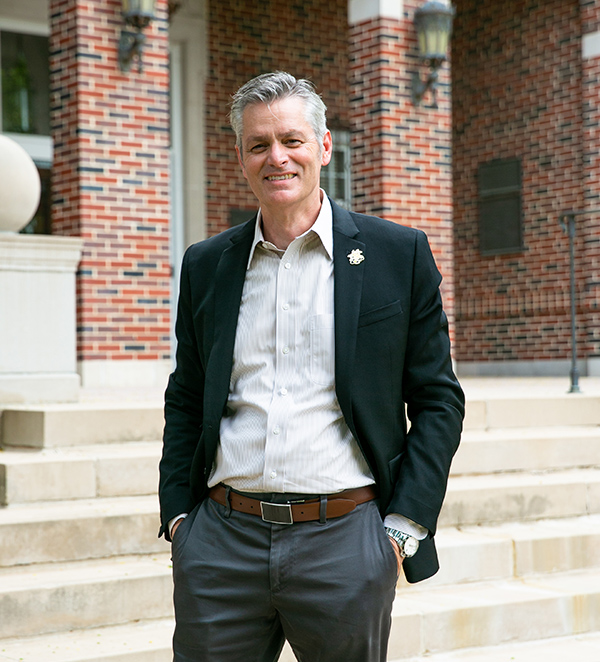
Wichita Biomedical Campus will transform Kansas

Dr. Rick Muma, president
When I was training to become a physician assistant and a public health practitioner, I had the fortunate experience of learning and researching at the Texas Medical Center in Houston, which has five partner universities with medical schools — including the University of Texas Medical Branch in Galveston, Texas, where I received my PA degree. The Texas Medical Center in Houston is the largest health science center in the world; and as a student and a professional, I saw firsthand how that kind of collaboration creates innovation and improves patient outcomes.
Working in that environment and in proximity to other health care professionals and researchers, the potential was palpable, paving the way for medical breakthroughs and advanced research.
As Wichita continues to grow and prosper, one gap in our infrastructure is a centralized and collaborative health sciences center to train health professionals and conduct medical research. It’s true that we have several strong health education academic programs for hundreds of specialties throughout our city, but to centralize them in a way that encourages partnerships would be a tremendous opportunity for patients and providers in our region.
In January, Wichita State, WSU Tech and the University of Kansas announced plans to build such a facility in Wichita, and in May, the Kansas Legislature approved seed money of $35 million to lay the groundwork for the Wichita Biomedical Campus. In September, we received approval from the Kansas Board of Regents to move to the next phase.
While we’re still working to finalize the location and some of the details for the facility, the 470,000-square-foot development will conceivably revolutionize health care education and research in Kansas and our region, and it will be unparalleled in it use of digital transformation and technology to educate the medical professionals of tomorrow.
In addition to educating health care professionals at a cutting-edge facility and improving outcomes for patients in our state, the facility will exponentially drive economic growth for Wichita. There’s significant potential for advancement in the medical industry, and the Wichita Biomedical Campus will be an opportunity to attract and retain talent in our city and boost the economic prosperity of our region.
There’s also the potential for creating 1,600 jobs downtown, plus 200 faculty and staff and an initial enrollment of roughly 3,000 students.
Of course, funding the proposed campus will be key to building it. Together with KU, we have submitted a $60 million proposal to Strengthening People and Revitalizing Kansas, and we’ve also asked the Kansas Legislature for $10 million each to bond the expected $300 million for the center.
There’s no doubt that this can be done. It’s a bold and audacious plan, and it’s what Wichitans and the people of our state deserve. Wichita State’s work to build an Innovation Campus has proven to this community that we can get things done for the benefit of our community. Our goal is to open the doors for the first class of Wichita Biomedical Campus students in 2026.
I hope you’ll take an opportunity to learn more about the Wichita Biomedical Campus and what it will mean for Shocker Nation and all of Kansas, and find out how you can be a part of this incredibly transformative project.
Go Shockers!
Sincerely,
Rick Muma
President of Wichita State University

